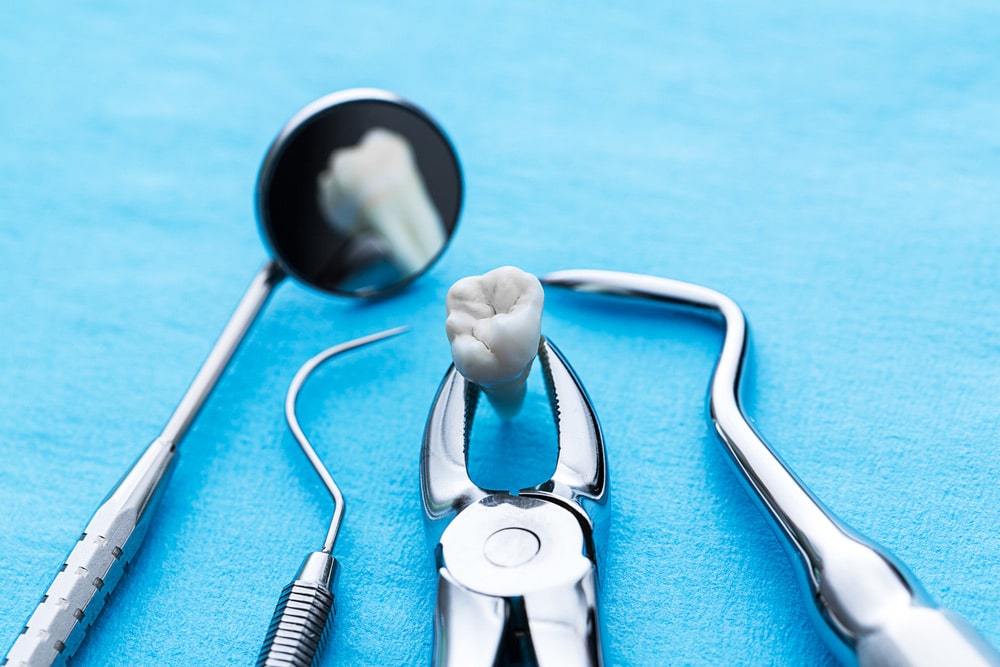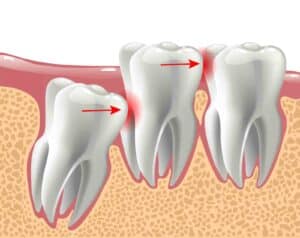Table of Contents
If you’ve ever had a toothache or experienced any other type of dental problem, you know how uncomfortable and even painful it can be. Wisdom teeth are known to cause significant problems for individuals, which is why extraction is often recommended or required. In this blog, we’ll discuss what wisdom teeth are and the reasons why they may need to be extracted.
What are wisdom teeth?
Wisdom teeth are the third and final set of molars that typically emerge between the ages of 17 and 25 and are located at the back of the mouth. Most people have four wisdom teeth, but it’s not uncommon to have fewer or none at all.
Reasons Why Wisdom Teeth Need to Be Extracted
Impacted Wisdom Teeth
Sometimes, wisdom teeth do not fully emerge from the gums, which is called impaction. Impacted wisdom teeth can cause a variety of problems, including pain, infection and damage to surrounding teeth. Impacted wisdom teeth can also lead to the formation of cysts or tumours, which can cause serious damage to the jawbone and lead to other health issues.
Overcrowding
The human mouth is designed to hold 28 teeth and with the addition of four wisdom teeth, it can cause overcrowding. This can cause alignment issues, making it difficult to clean between teeth, increasing the risk of tooth decay and gum disease.
Infections
When wisdom teeth do not fully emerge from the gums, they create a pocket where bacteria can easily grow, leading to infections. These infections can cause swelling, pain and even difficulty opening the mouth.
Damage to surrounding teeth
Wisdom teeth can push and damage the adjacent teeth, causing misalignment and pain.
Signs and Symptoms of Problematic Wisdom Teeth
If you’re not sure whether your wisdom teeth are causing problems, there are some common signs and symptoms to look out for. These may include pain, swelling, tenderness and redness in the gums around the wisdom teeth. You may also experience bad breath, a bad taste in your mouth, difficulty opening your mouth and pain when chewing or biting. In some cases, you may also develop a fever or feel generally unwell.
Why extract “healthy” wisdom teeth?
Even if wisdom teeth are not causing any problems, they may still need to be extracted as a preventative measure. This is because it is difficult to clean and maintain proper oral hygiene around wisdom teeth due to their location at the back of the mouth. This can lead to tooth decay and gum disease, which can cause serious problems down the line. Therefore, it’s often best to remove healthy wisdom teeth before they cause problems.
When is the Best Time to Extract Wisdom Teeth?
The best time to extract wisdom teeth is typically in the late teens or early twenties, before the roots have fully developed and the bone is still somewhat soft. This can make the procedure easier and reduce the risk of complications. However, in some cases, wisdom teeth may need to be extracted later in life due to problems that have developed. Your dentist or oral surgeon can evaluate your situation and determine the best timing for your wisdom teeth extraction.
How Are Wisdom Teeth Extracted?
There are two main types of wisdom teeth extraction: simple extraction and surgical extraction. Simple extraction is used when the tooth is visible above the gum line and can be easily removed with forceps. Surgical extraction is used when the tooth is impacted or has not yet emerged from the gum line. This procedure involves making a small incision in the gum to access the tooth and may require the tooth to be broken into smaller pieces for removal.





